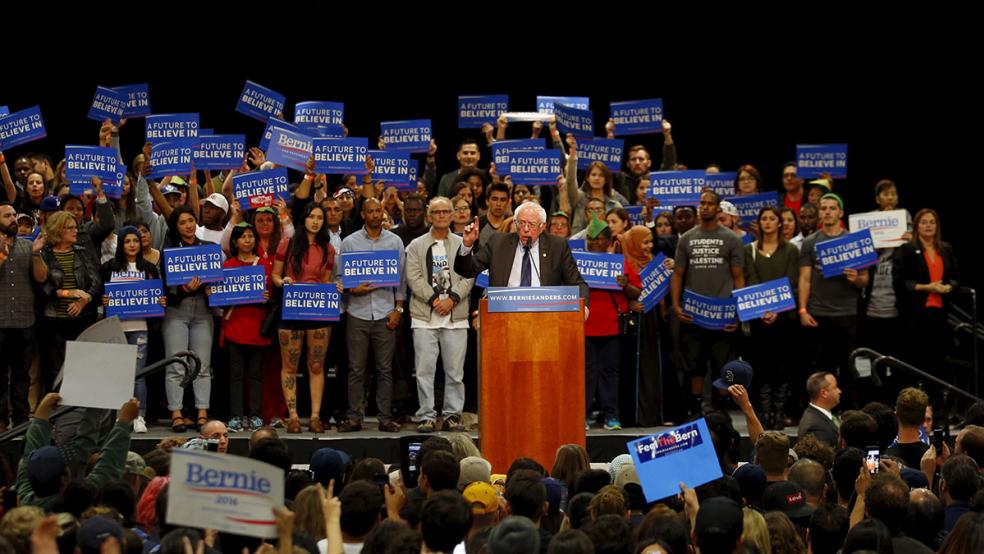Despite three landslide wins by Bernie Sanders over the weekend, the advantage in the Democratic primary still belongs to Hillary Clinton.
The Vermont lawmaker swept caucuses in Alaska, Hawaii and Washington, chipping away at the considerable gap in pledged delegates between him and Clinton.
Related: For Now, Democrats Savor a Clinton-Trump Matchup this Fall
However, the former First Lady needs only about one-third of the delegates left to reach 2,383 and win the nomination, compared to two-thirds for Sanders, a mighty tall order.
And despite his frequent boasts about having “a lot of momentum” and that super delegates pledged to Clinton could change their minds, the election calendar isn’t about to do him any favors.
The next primary is on April 5 in Wisconsin, the kind of Rust Belt state that should gravitate toward Sanders’ message of economic inequality. But a Real Clear Politics average of polls show him trailing Clinton, who revived her listing campaign earlier this month by sweeping the Midwestern states of Ohio, Illinois and Missouri.
Related: Free Health Care for Illegal Immigrants Now a Campaign Issue
Wyoming holds its caucus on April 9 and Sanders could pull out a victory there, as he’s won every caucus state since voting began, but it’s one of the last caucus states. If anything, a win in another overwhelming white state might be further confirmation that the democratic-socialist has failed to broaden his appeal to ethnic voters and those in older age groups, two blocs that make up the bedrock of the Democratic Party.
After that it is on to New York, where Clinton, who represented the state in the U.S. Senate, is crushing Sanders, followed a slew of primaries on April 26. Available polling of those Northeast states -- Connecticut, Delaware, Maryland, Pennsylvania and Rhode Island – shows Clinton ahead by comfortable margins in each, according to Real Clear Politics.
Sanders, very much aware he needs to do something aggressive to boost his standing, has thrown down the gauntlet and is demanding another debate before the critical New York vote, when nearly 300 delegates will be at stake. He clearly hopes that by sharing the stage with Clinton he will elevate his candidacy and his message.
Related: Why a Trump Candidacy Threatens the GOP Majority in Congress
Despite facing a seemingly insurmountable challenge, Sanders, who has kept up with and at times outpaced Clinton in terms of fundraising, isn’t going to run out of money before Democrats meet for their convention this summer in Philadelphia.
While Sanders can’t be written out of the race just yet, it doesn’t look like any of the upcoming contests will give him the huge margin of victories he needs to compete with Clinton.





